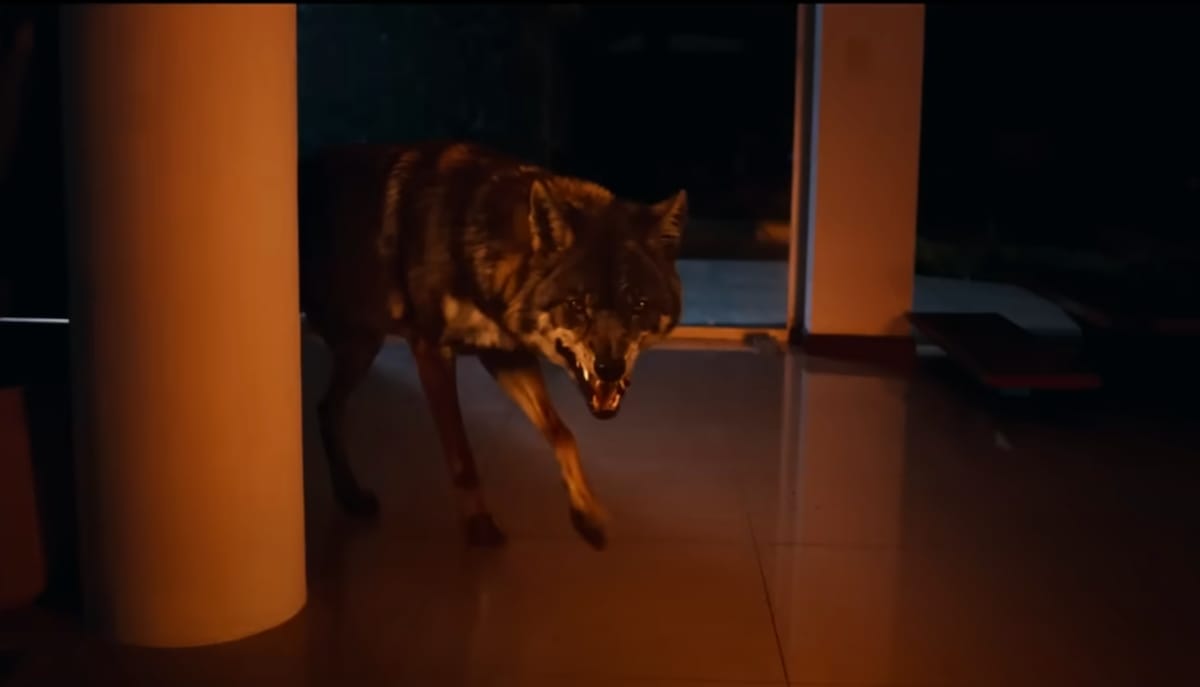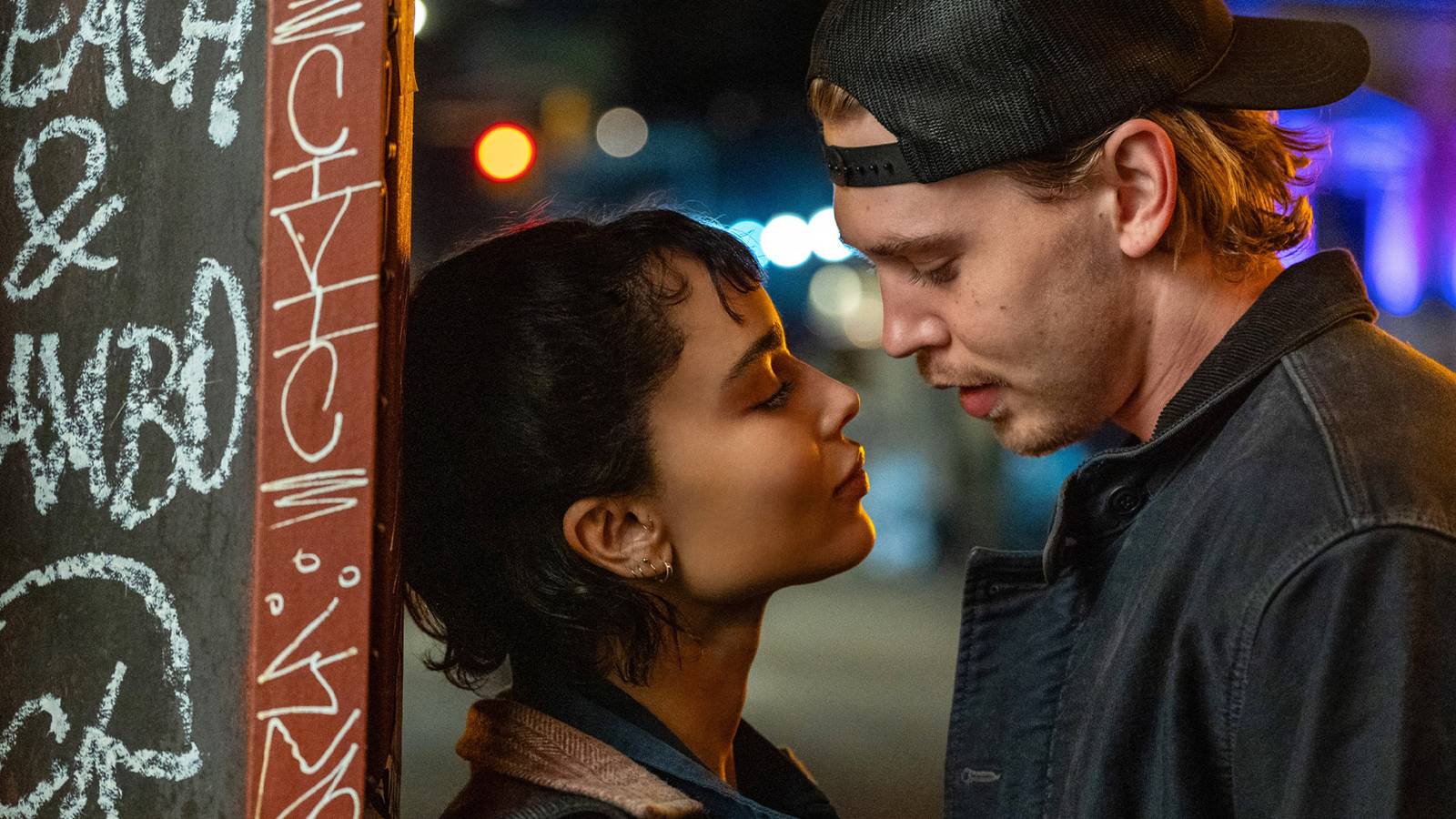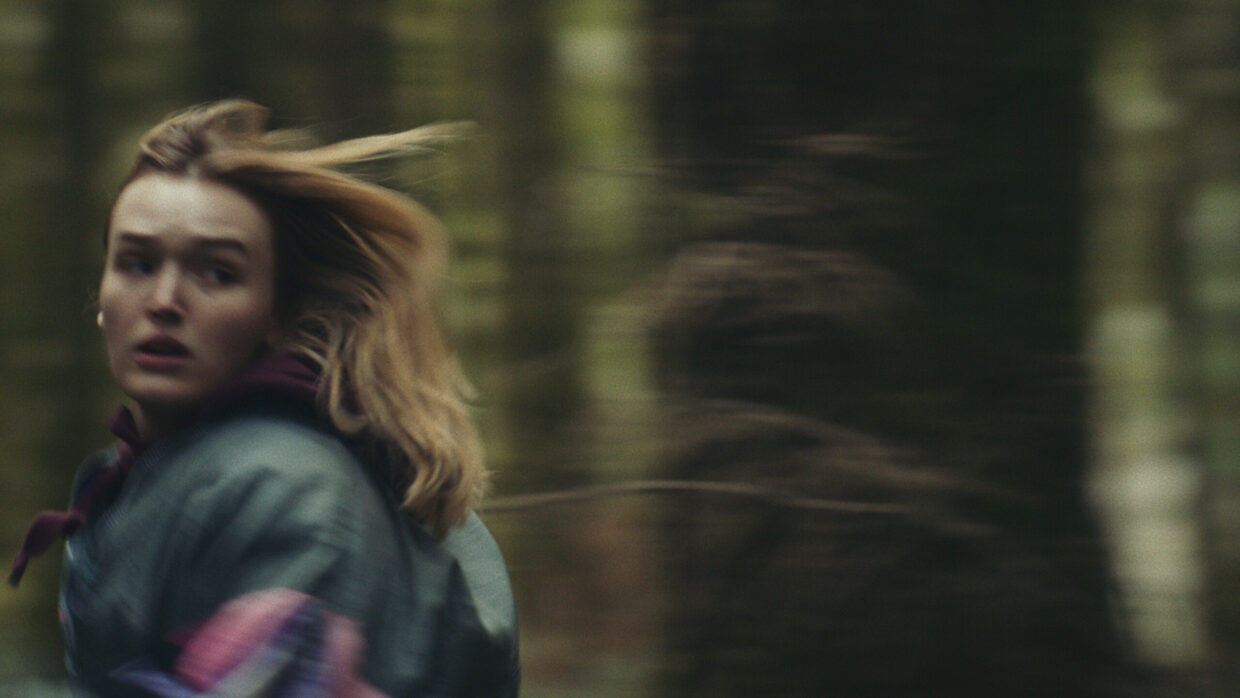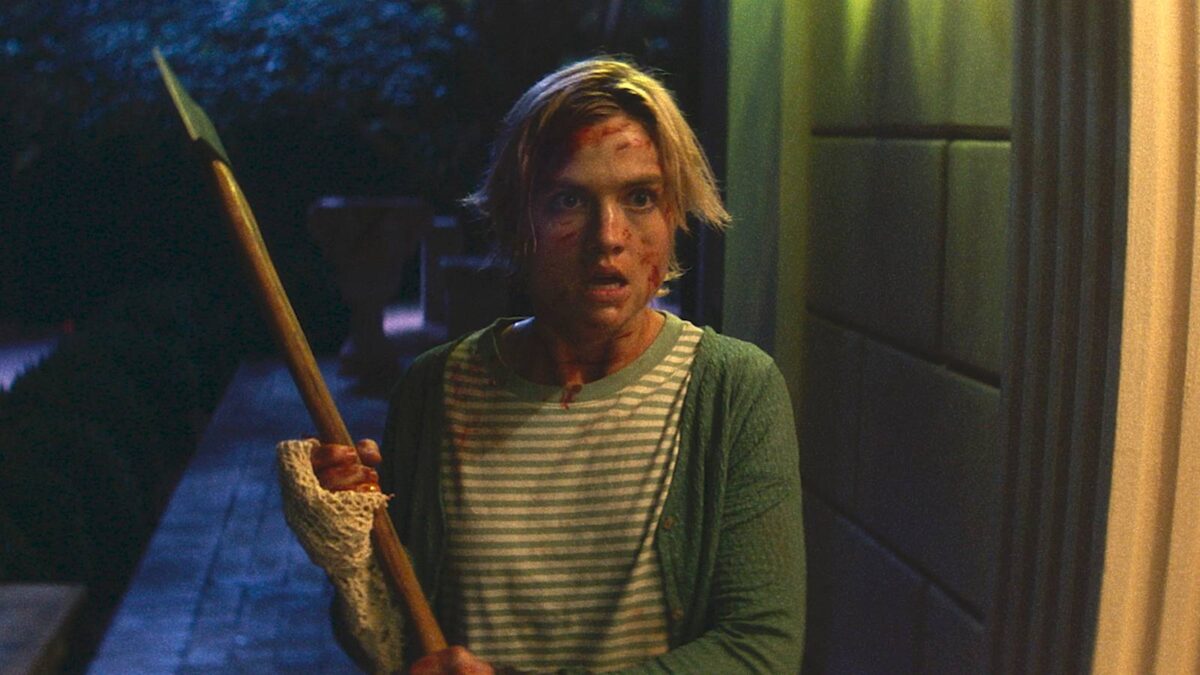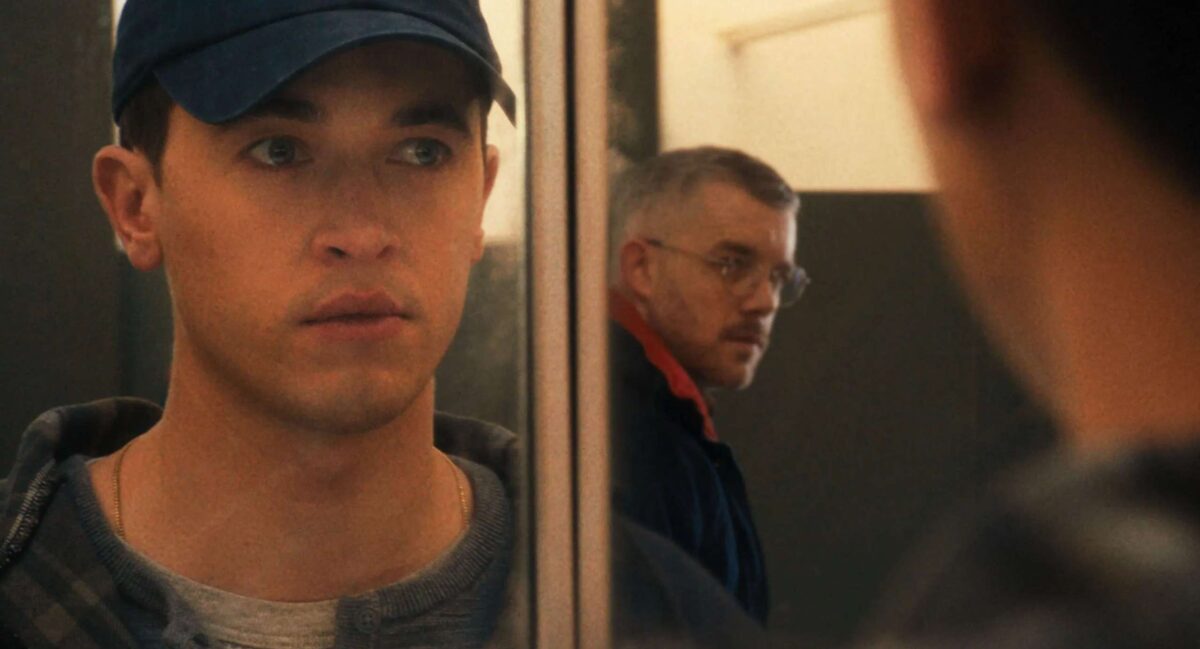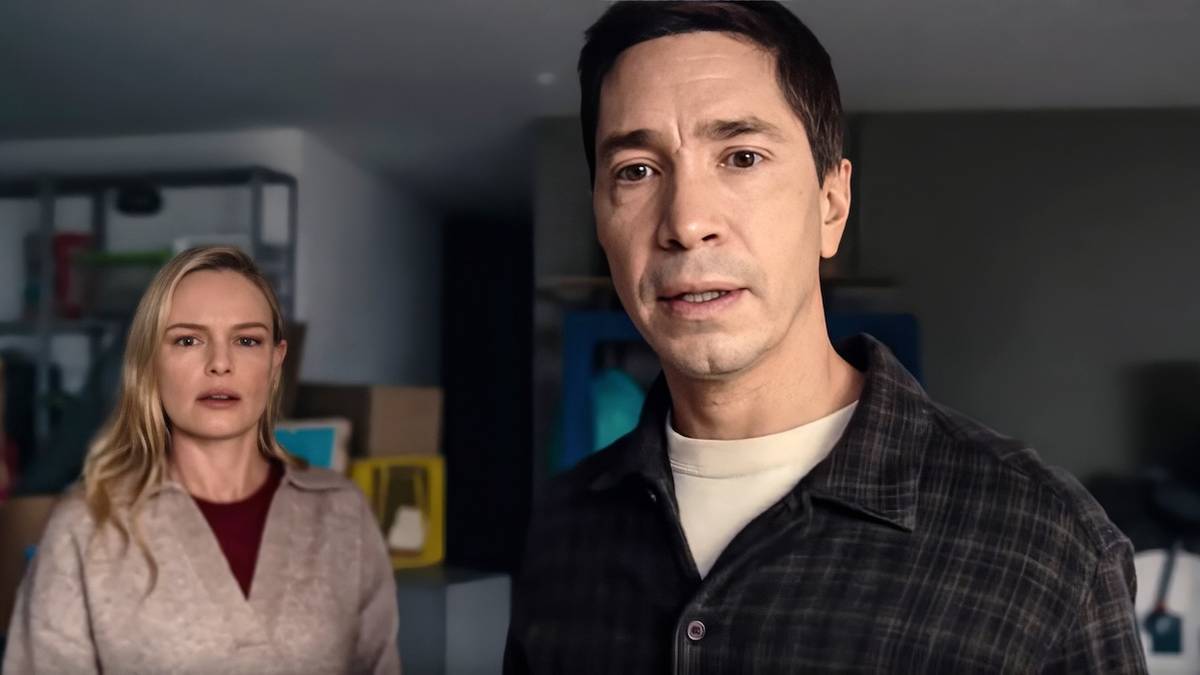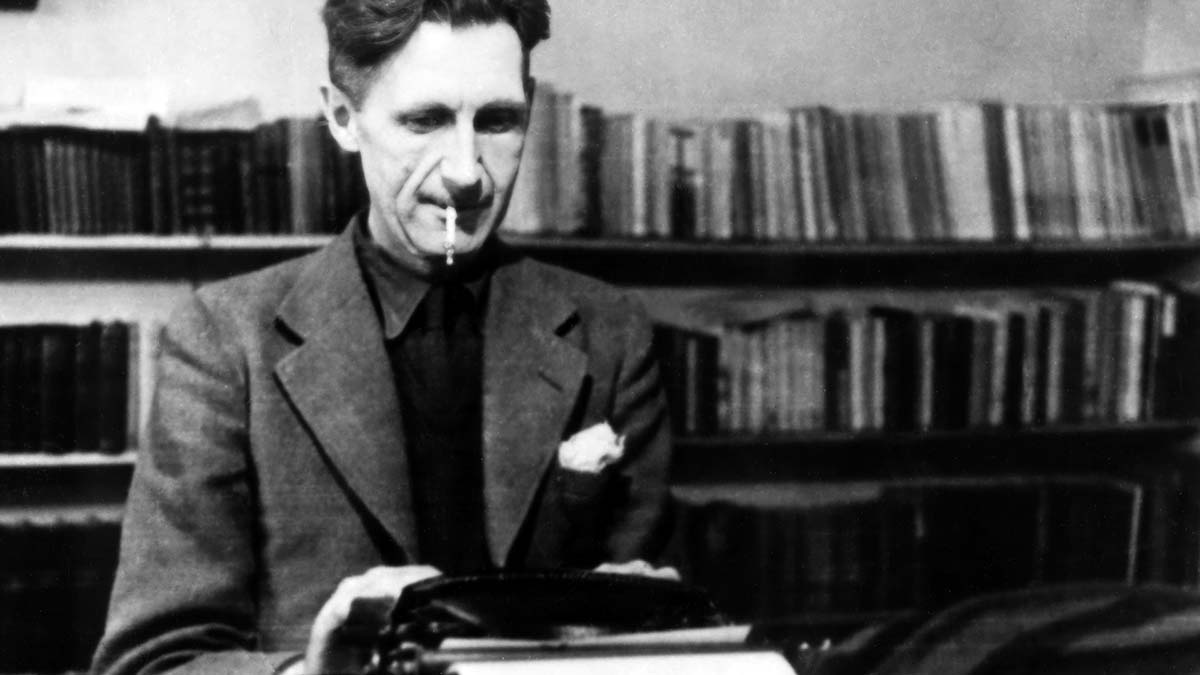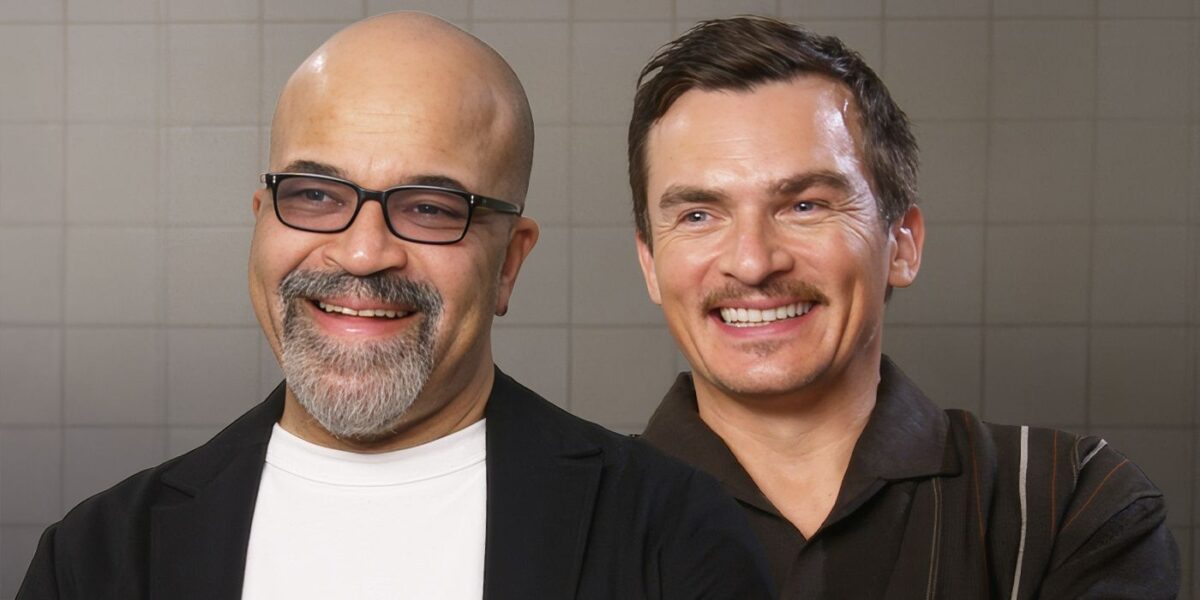
‘The Phoenician Scheme’s Jeffrey Wright Gives Us an Insider’s Look at “Wes Land”
May 30, 2025
Summary
Collider’s Steve Weintraub talks with Jeffrey Wright and Rupert Friend for Wes Anderson’s The Phoenician Scheme.
In this interview, Wright and Friend discuss Anderson’s visual language, filming multiple takes, and the joys of finding the auteur’s vision on-set.
They also share their favorite movie theaters and the importance of preserving the theatrical experience.
The man, the myth, the legend, Wes Anderson, returned to the Cannes Film Festival this year with his espionage comedy, The Phoenician Scheme. In his signature style, Anderson is taking audiences on a globe-trotting adventure with Benicio Del Toro at the top of the call sheet of the filmmaker’s returning, A-list collaborators. Business tycoon Zsa-Zsa Korda (Del Toro) has confronted his mortality a handful of times, and on the sixth attempt on his life, Korda comes to the conclusion that he needs to appoint an heir to his empire immediately. Bypassing nine sons, the weapons dealer chooses his only daughter, Liesl (Mia Threapleton), and the pair take off on a whirlwind escapade, communing with Korda’s relatives, friends, and acquaintances, played by Jeffrey Wright, Scarlett Johansson, Benedict Cumberbatch, Rupert Friend, Tom Hanks, Bryan Cranston, and many more. With The Phoenician Scheme hitting select theaters, Collider’s Steve Weintraub had the opportunity to sit down with Wright and Friend, who share their insight into the world of Wes with us. From a mind-blowing number of takes to the significance of a comma versus a semicolon, the two discuss the joys of finding the freedom within Anderson’s unmistakable aesthetic to explore. They also share their favorite movie theaters to frequent, and Wright realizes he may be the only actor “in the history of cinema” with certain bragging rights.
Jeffrey Wright Might Be the Only Actor “In the History of Cinema” To Pull This Off
He appeared in both Wes Anderson and Spike Lee’s film premieres at the Cannes Film Festival.
Image by Jefferson Chacon
COLLIDER: When did you decide you wanted to be in every movie at Cannes this year? JEFFREY WRIGHT: [Laughs] Oh, I guess I decided at the same time, because I shot both of these films within the same few months. I was working on Spike [Lee]’s film, [Highest 2 Lowest], and we were to do Wes’s film that fall, but it got pushed because of the writers’ strike. So, I ended up getting a couple of weeks off while working on Spike’s film to run off to Wes Land and do this. So I guess it all kind of happened at the same time. I think I’m probably safe to say I’m the only actor here who’s in a Wes Anderson and a Spike Lee movie. [Laughs] RUPERT FRIEND: That’s pretty cool! I’m 100% sure. WRIGHT: Maybe in the history of cinema. I’m obsessed with watching movies in movie theaters, not on your phone. I think the movie theater is a sacred place. Do you have a favorite movie theater? FRIEND: Oh my gosh, back in England, I don’t live there anymore, but I love the smaller, like the Curzon chain. The Picturehouse chain. They program really well, the screen is great, and all of that, and you don’t tend to have quite so many people throwing popcorn. As you said, there’s something sacred about sitting, as I heard someone once describe the definition of a movie, “in the dark with strangers,” and the inability to pause it. That is just what cinema is. It’s not to be done in between something else. So, I agree with you, and thank you for saying that. WRIGHT: I tend to go with my kids now, and they love it, to the nearest cinema to our house in Brooklyn, the Alamo Drafthouse. We sit and have a meal together, and I think because of the experiences with them, it’s become my favorite. That said, the first time I was here with a film was with Asteroid City, and the experience of watching and screening the film with the audience here at the Palais was absolutely unique. I don’t think I’d ever had an experience where I felt such a sense of genuine appreciation, yes, for what we had done, but there was a larger sense of appreciation that was palpable just for creativity and for cinema. There was something so warm about that. This place, I had forgotten, as soon as you get out of the airport, it’s a madhouse. It’s a circus here, but when you carve through all of that and you get to the heart of it, inside of that space, inside of that cinema, it’s really something very genuine and pure. It really is super, super rare.
Related
Quentin Tarantino Is Really Worried About Movie Theaters, and You Know What? He Has a Point
“What the f*** is a movie now?”
They love the art form here. It’s just another level. That’s why everyone gets dressed up and wears a tux. They treat the art form with the respect that a lot of the rest of the world doesn’t. WRIGHT: Yes, they do. FRIEND: It’s amazing. As Jeffrey said, that feeling of the love of cinema, you feel it oozing everywhere here in a way that’s not necessarily true elsewhere.
Jeffrey Wright and Rupert Friend Give us a Sneak Peek Inside “Wes Land”
“I love that he doesn’t give a shit.”
I am a huge fan of Wes’s work. The thing about Wes is he’s such a unique filmmaker with the way actors deliver dialogue, with the camera moves. Every aspect of his film is a Wes movie. As actors, what is it like before you step on set, knowing that it’s a very particular thing he’s looking for? FRIEND: The first time I worked with Wes was on The French Dispatch. I remember, thankfully, somebody warning me that he did quite a few takes and not to take it personally. I was very hubrisic, and I said, “I don’t need many takes. I normally get it in a few, but thanks for the warning.” Take 45 rolled around, and I was shaking. I was like, “I’m so sorry! What have I done? What have I done?” And he was like, “No, no, no. I just changed this little thing there, and I changed that thing there. It’s going very well. That is a comma, not a semicolon, in the middle of that sentence.” And you go, “Ah! Right.” What I love about it is I feel like I’m striving to get something that he’s already seen in his mind, and if I can get it, it just ignites, and he loves it, and I love it. It’s like, “Okay, we found it.” But it can be quite an interesting and very detail-oriented process to arrive at that. WRIGHT: I think for some people, it might feel confining the way that Wes works. I’ve talked to some people who [think] it’s a challenge, and it’s a challenge for all of us to achieve what he wants, but what I love is that he sets these kinds of aesthetic parameters, and it’s a very specific thing. As you say, Wes is a genre unto himself. But within that, there’s an opportunity for a kind of creative freedom that you can nestle into that’s really very gratifying. No matter who you’re working with, what you’re doing, what style of film you’re doing, there are parameters. There’s a frame that you have to work within. Your job is to find the freedom within that. And so it’s the same with his style of filmmaking, but there’s a very specific frame that you’re living inside of. I love that he’s his own thing. I love that he’s non-conformist. I love that he doesn’t give a shit. He doesn’t give a shit about what anybody else is doing. He’s doing his thing. I also absolutely adore that the way that he works is his respect for the comma. I mean, the specificity of his language, for me, personally, is something I really groove to. It feeds me a lot of information off of the page that I can work with. So, I find a great deal of touchstones that allow me, even within what might seem like these very specific parameters, to find a bit of freedom.
It’s so interesting that Wes does so many takes, yet no one really talks about it the way that [David] Fincher gets talked about. Wes is never mentioned in that same sentence, but he does so many. WRIGHT: Yeah. He does. We did an insert once for Asteroid City. It’s the simplest thing. It was literally my hand flipping up a holster flap and grabbing a pistol. That was it. I think we might have done that 60 times over the course of four hours until we finally found the solution. The solution was to have our prop guy stand to my left — the camera was to my right, so he couldn’t be seen, and he shrank himself — and he reached around, above the frame, and as I lifted the holster, he held up the flap so that it could be a clear shot. We were doing this literally over, like, four hours. We were so intent on finding the solution. Everybody was like, “How do we crack this equation?” And ultimately, we did. Then we got to go home and eat. FRIEND: To add to that, I love the amount of old-school, sometimes theatrical trickery that Wes employees. I remember doing The Swan, one of the Roald Dahl short films, and to get the sense of a train going over my head, there was a bicycle wheel with zip ties hanging off it, and someone turning. There’s no, “We’ll fix it in post. We’ll get a special effects guy.” It was that analog, that rudimentary, and that wonderful. WRIGHT: So good. FRIEND: The detail orientation of this man to spend that long on one insert when many people would say, “I’ll just do that later with someone else,” it’s like, “No. It has to be this character’s way of doing it.” That’s what I think makes the film so extraordinary. The Phoenician Scheme is now playing in select theaters, everywhere June 6.
Get Tickets
Publisher: Source link
Erotic Horror Is Long On Innuendo, Short On Climax As It Fails To Deliver On A Promising Premise
Picture this: you splurge on a stunning estate on AirBnB for a romantic weekend with your long-time partner, only for another couple to show up having done the same, on a different app. With the hosts not responding to messages…
Oct 8, 2025
Desire, Duty, and Deception Collide
Carmen Emmi’s Plainclothes is an evocative, bruising romantic thriller that takes place in the shadowy underbelly of 1990s New York, where personal identity collides with institutional control. More than just a story about police work, the film is a taut…
Oct 8, 2025
Real-Life Couple Justin Long and Kate Bosworth Have Tons of Fun in a Creature Feature That Plays It Too Safe
In 2022, Justin Long and Kate Bosworth teamed up for the horror comedy House of Darkness. A year later, the actors got married and are now parents, so it's fun to see them working together again for another outing in…
Oct 6, 2025
Raoul Peck’s Everything Bagel Documentary Puts Too Much In the Author’s Mouth [TIFF]
Everyone has their own George Orwell and tends to think everyone else gets him wrong. As such, making a sprawling quasi-biographical documentary like “Orwell: 2+2=5” is a brave effort bound to exasperate people across the political spectrum. Even so, Raoul…
Oct 6, 2025


